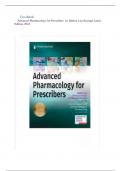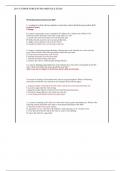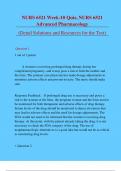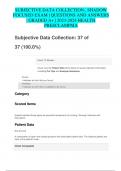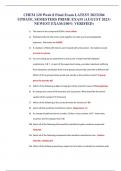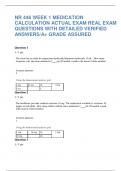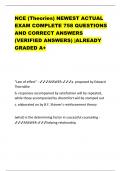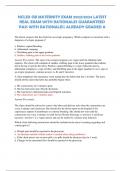Exam (elaborations)
Test Bank For Advanced Pharmacology for Prescribers 1st Edition By Luu Kayingo || All Chapters || Updated Version 2024 A+
- Course
- Institution
- Book
Test Bank For Advanced Pharmacology for Prescribers 1st Edition By Luu Kayingo || All Chapters || Updated Version 2024 A+ Table of Contents Chapter 1: An Introduction to Evidence-Based Clinical Practice Guidelines...........................................3 Chapter 2: Pharmacokinetics /Chapter3:...
[Show more]
